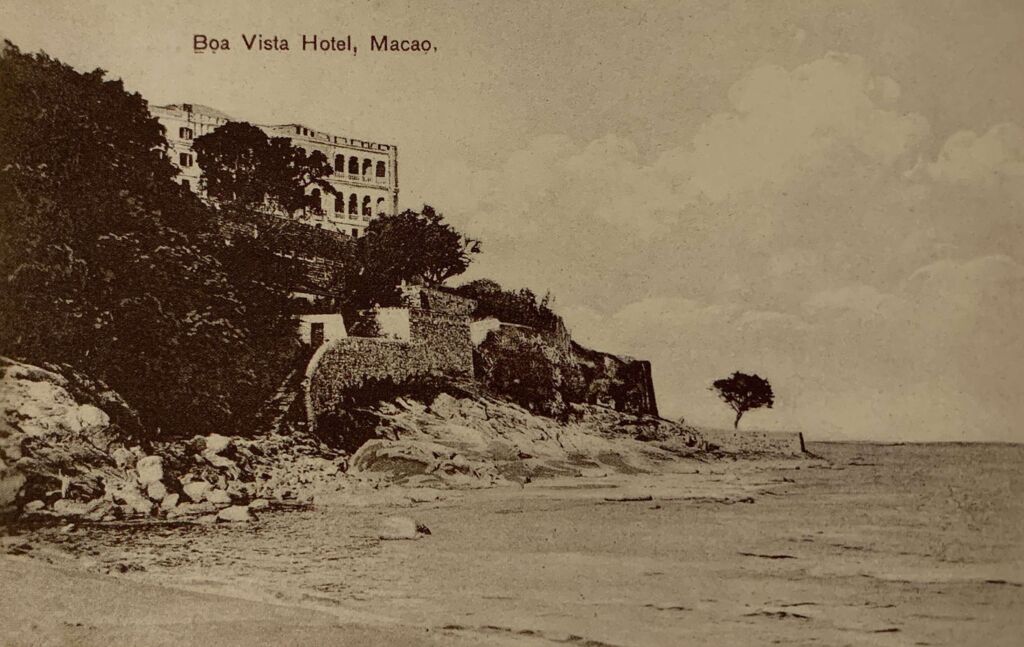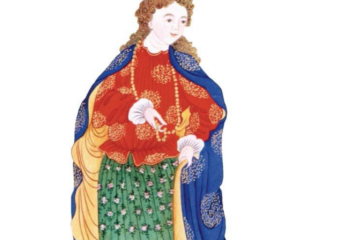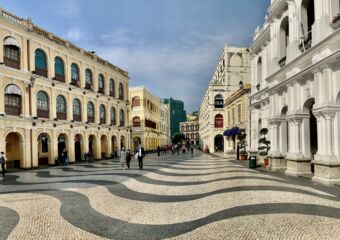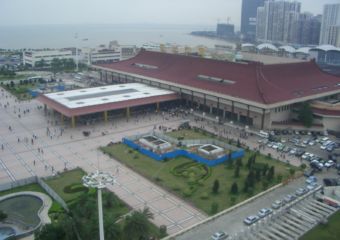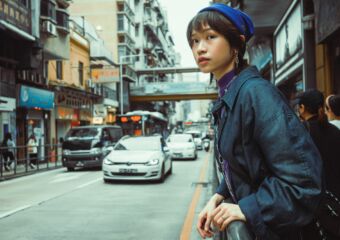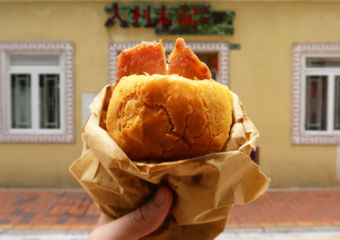Featured image: Old postcard of Bela Vista Hotel circa 1900. Source: “Macau Antique Postcards” by João Loureiro
Can you spot that bright yellow building with a colonial-style design, up on Penha Hill? Yes, the one known as Bela Vista Hotel, even though it’s been the Portuguese consul’s residence for more than two decades now. This building has been around since the mid-19th century and it’s part of Macau’s history. Having hosted British socialites, Portuguese governors, and other important personalities, the then called Hotel Boa Vista (with boa vista meaning “a good view”) is a beautiful piece of architecture, once more left by Portugal. Read on to find out more!
The Clarkes and Many Uses
Built in 1870, it’s said to have first hosted the local Remédios family, then being bought by a British couple. William and Catherine Clarke turned it into a hotel 20 years later, the Hotel Boa Vista–given the great view from the top. William was a captain of steamer ferries crossing the Pearl River between Canton and Hong Kong. The couple soon found they weren’t able to keep the building and put it on the market.
According to Elaine Denby in her book “Grand Hotels: Reality and Illusion”, in 1902, the French were first in line to buy it–they wanted to transform it into a sanatorium–but rumor has it that the British government pressured the Portuguese–then rulers of Macau–to confiscate it. It returned to its original use from 1909 to 1917.
In between, the place housed a sanatorium indeed, but just for a short period: the idea was released by governor Horta e Costa but put into practice some years later. “With an ideal location, modern and recently refurbished and under new management”, the sanatorium was targeted for families looking for fresh air and a place to get their health on track. With “ample and comfortable room, a kitchen under excellent management, separated tables, hot and cold baths and electricity”, this was deemed as the only sanatorium in the South of China.
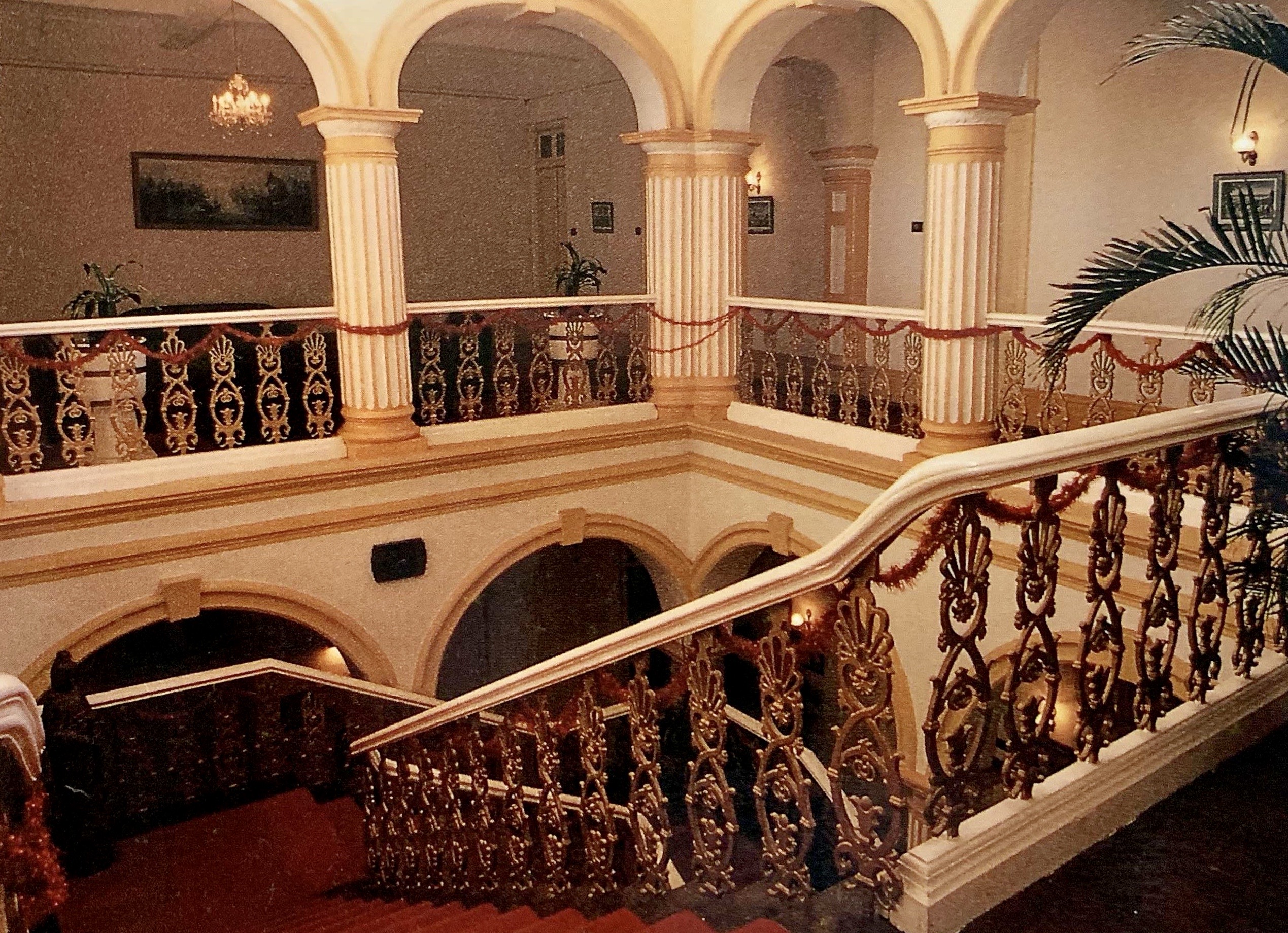
Bela Vista Hotel lobby. Photo credit: Eduardo Tomé. Source: Postcard published by the Macao Cultural Institute (1988)
Education and wartime
Like many other places around town, Bela Vista Hotel too had the most different uses across time. Besides serving as a hotel–what it’s best known for–and a residence for officials, it was also a hotspot for education and more. Portuguese writer Camilo Pessanha and Bishop D. José da Costa Nunes (a kindergarten is named after him) taught in this building, which, at the start of the 20th century, was Liceu de Macau (high school).
During the Second World War, Bela Vista Hotel served yet another very noble purpose: housing refugees from Hong Kong and China–both locals and foreigners, as in the case of renowned Russian painter, George Smirnoff. According to official records from his daughter Irene, their first home in the city was “the lounge-dining room in the Bela Vista Hotel”.
“Formerly one of Macao’s better hotels, beautifully situated on the foundations of an old fort overlooking the Praya Grande, the wartime Bela Vista Hotel was far from luxurious, but provided a welcome refuge. Along with other places, like the Macao Club, the Bela Vista Hotel was used as accommodation for the hundreds–perhaps thousands–of refugees who came across from Hong Kong. All the children slept side by side on the floor, packed in like so many small sardines; it didn’t matter–we were all just so glad to be away from immediate danger”, she adds.
A Blessed Terrace
Sometime before the 1960s, the structure was turned back into a hotel again, this time under new direction, of three Chinese ladies. This is when it finally changed its name to Bela Vista Hotel. The government discovered one of the hotel’s manager was allegedly trying to make a gambling house out of it. Adrião Pinto Marques was the following manager after that. It’s said he usually spent hours on end lying down on a chair at Bela Vista Hotel’s terrace.
French journalist Philippe Pons has a charming description of this place, “Far from the war, Macao has a bohemian, ephemeral existence… The staff seemed as aged as the building and under as little pressure as the water coming out of the bathroom taps”. Adrião Pinto Marques’s son succeeded him after his death, which coincided with the interest of Excelsior Hotels and Investments on historic sites in Macau. The company took a 25-year renewable lease from the Portuguese government, with Mandarin Oriental Hong Kong Ltd managing the hotel.
Pinto Marques left an interesting and nostalgic comment on “Hong Kong (& Macau) Stuff” blog, where he tells stories about writers Austin Coates and Tiziano Terzani, how the Coates’ favorite room was number 209, or how Terzani’s sunset hours were spent drinking cocktails before heading downtown.
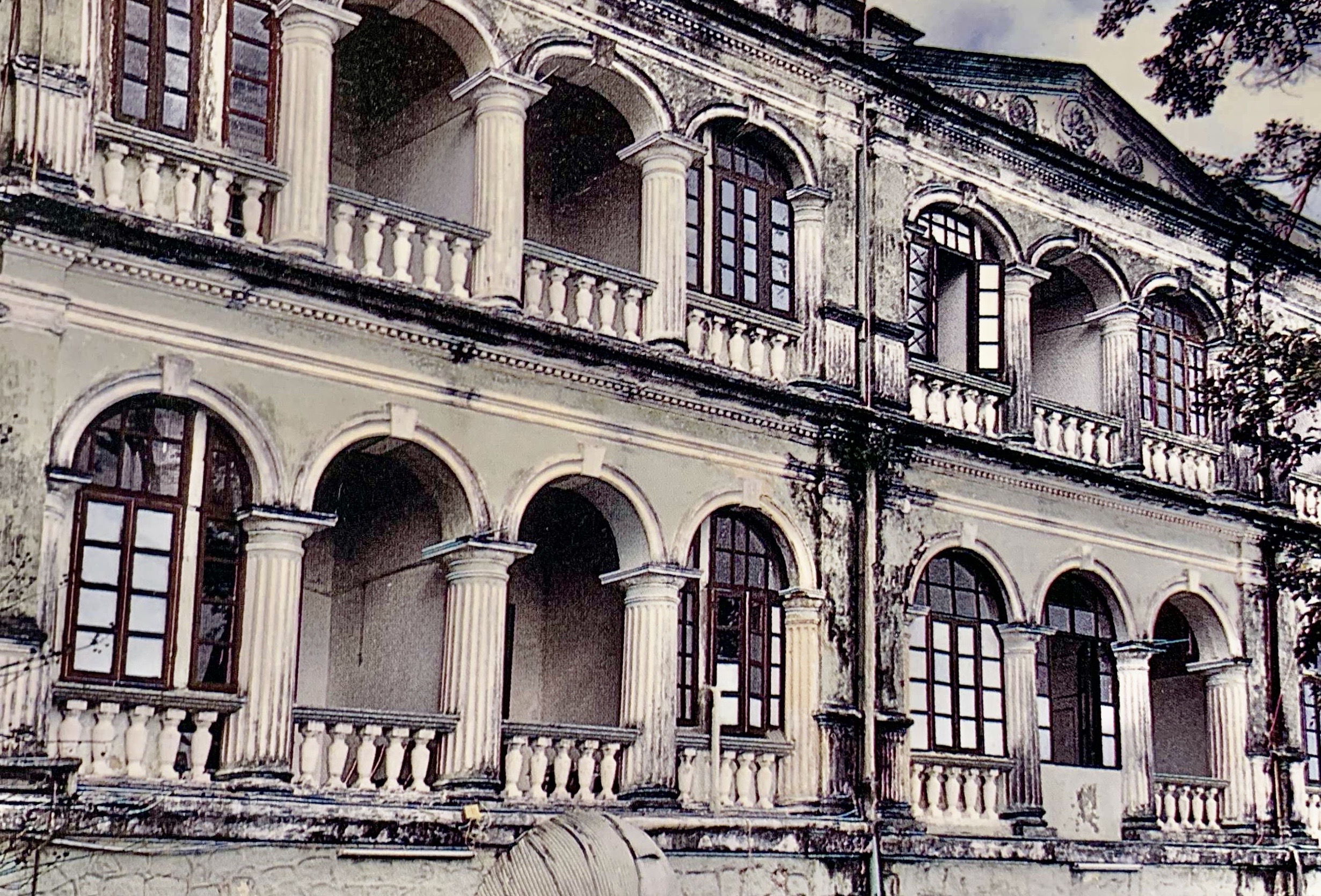
Photo credit: Eduardo Tomé. Source: Postcard published by the Macau Cultural Institute in 1988
1999 & beyond
In March 1999, the news had come out: the building stops functioning as a hotel to become the Portuguese consul’s residence after the transfer of sovereignty from Portugal to China, from December 1999 onwards. Fortunately, the public can still visit on special occasions, such as the Day of Portugal, on June 10 every year. It still maintains its look after refurbishments during the 90s. The renovation project was completed in November 1992 and signed by Portuguese architect Bruno Soares and Irene O.
Then, the hotel was still functioning, reopening for business a month before the works. News released on March 28, 1999 lets us know that on its last night was the first time a Portuguese governor was ever accommodated there: the last Governor of Macau, Rocha Vieira. There were other personalities such as former prime minister of Portugal and president Mário Soares and Cavaco da Silva, but also Hong Kong’s last governor Chris Patten and French president, Jacques Chirac.
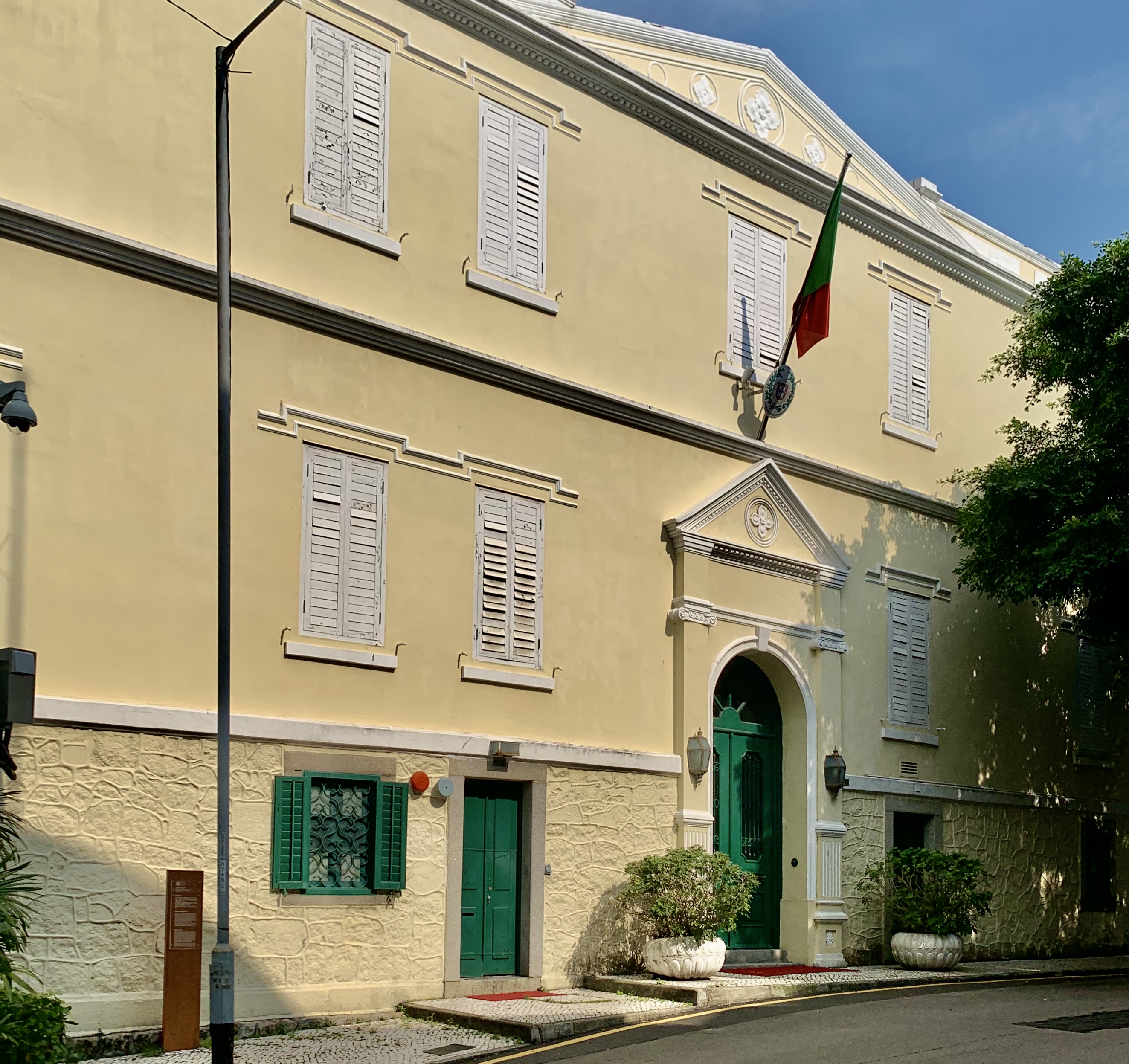
Former Bela Vista. Present: Residence of the Portuguese Consul
Bibliography
Books:
- “Macau Antique Postcards” (1997), João Loureiro
- “Grand Hotels: Reality and Illusion” (1998), Elaine Denby
- “A New Literary History of Modern China” (2017), David Der-Wei Wang
Websites:
- Foreword (by Irene Smirnoff) of “Macao – People and places, past and present” (2013) by Jason Wordie
- Macau/99: Bela Vista encerra como hotel para ser casa do cônsul de Portugal – macau20anos.lusa.pt/macau-bela-vista-encerrou-como-hotel/
- Macau Memory – www.macaomemory.mo

